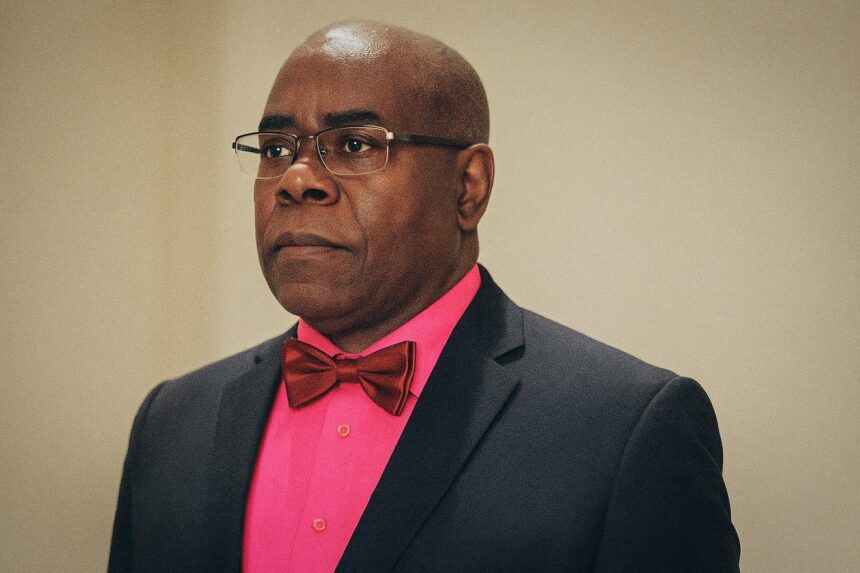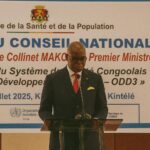Shockwaves across Brazzaville’s corridors
News of Note Agathon’s death in Nancy on 22 July 2025 travelled swiftly from family circles to the marble halls of Brazzaville, prompting a rare moment of collective pause among civil servants and diplomats alike. Within hours, the Ministry of Communication issued a terse communiqué saluting “a guardian of republican rigor”, while state radio devoted extended airtime to archival speeches of the late administrator (Ministry of Communication statement, 23 July 2025). The atmosphere, seasoned observers remarked, recalled the passing of other nation-building figures in the 1980s, underscoring how deeply Agathon’s persona is woven into the republic’s fabric.
- Shockwaves across Brazzaville’s corridors
- Early formation under the French administrative mantle
- Architect of commerce and constitutional oversight
- Austerity, candor and the currency of plain words
- Diplomatic tributes and domestic sobriety
- Rituals of farewell and the politics of remembrance
- Echoes of a life and lessons for a republic
Early formation under the French administrative mantle
Born in 1937 in the Pool region, Agathon emerged from the first cohort of Congolese scholarship holders sent to France after independence. He graduated from the then-prestigious École Nationale de la France d’Outre-Mer in 1963, one of only three Congolese in that class, according to contemporary press reports (Jeune Afrique, 24 July 2025). The choice of schooling signalled Brazzaville’s strategy: to graft modern administrative science onto local governance structures. Peers recollect a young man unbending in punctuality who kept a pocket notebook cataloguing procedural nuances—an early sign of the methodical temperament that would later define his public ethos.
Architect of commerce and constitutional oversight
Agathon’s domestic career accelerated in the mid-1970s when he was tasked to reorganise the fledgling Office National du Commerce (Ofnacom). Internal memoranda from the period, now preserved at the National Archives, reveal how he introduced multi-year procurement planning and rigorous auditing, curbing leakages in a sector then prone to mercantile turbulence. His subsequent appointment as Director of Cabinet to Prime Minister Jacques Joachim Yhombi-Opango placed him at the hinge of executive deliberations during a phase of economic recalibration following the first oil boom.
Yet Agathon’s most delicate assignment arrived in 1997, when he became President of the Constitutional Court. International monitors credit his stewardship with steering the court through volatile post-conflict elections, balancing procedural orthodoxy with political prudence (AFP dispatch, 23 July 2025). Though critics questioned certain rulings, no evidence ever surfaced of personal gain, a rarity in an era when many tribunals in the region wrestled with credibility.
Austerity, candor and the currency of plain words
Colleagues often distilled Agathon’s moral code into two words: discipline and veracity. A senior official at the Ministry of Public Service, requesting anonymity, recalls weekly staff briefings that “felt like oral examinations in civic duty”. His penchant for direct language, occasionally tinged with wry humour, entered bureaucratic folklore. During a 2003 budget meeting he reportedly admonished a hesitant accountant: “State money is not a river to fish in at dusk; it is a mirror—stare too long and you see yourself” (Les Dépêches de Brazzaville, 24 July 2025). Such epigrams, delivered without rancour, sharpened a culture of accountability among younger cadres who now occupy strategic posts.
Diplomatic tributes and domestic sobriety
President Denis Sassou Nguesso conveyed condolences to the family, praising Agathon as “a sentinel of institutional continuity whose counsel enriched presidential reflection”, a phrasing that subtly acknowledges the informal advisory role the elder statesman maintained after retirement. Messages from Paris, Abidjan and Addis Ababa followed, each emphasising his contribution to professionalising public administration across Francophone Africa. The French Ministry for Europe and Foreign Affairs highlighted his alumni status as “symbolic of the intellectual relay between France and Congo during decolonisation”. Such acknowledgements, while ceremonial, testify to Agathon’s influence in the discreet circuits of regional diplomacy.
Rituals of farewell and the politics of remembrance
In accordance with family wishes, a period of private vigil will precede the transfer of the coffin to Brazzaville. Protocol services confirm that the body will lie in state at Palais du Peuple before a mass at Sainte-Anne Cathedral, echoing rites accorded to other high-ranking civil servants. The government’s choice of national rather than military honours reflects both Agathon’s civilian vocation and Brazzaville’s evolving commemorative grammar, which now seeks to elevate technocrats alongside soldiers and politicians.
Beyond ceremonial choreography, the administration is contemplating a lecture series bearing his name at the École Nationale d’Administration et de Magistrature. Should the initiative materialise, it would enshrine Agathon’s legacy in the pedagogical core of Congo-Brazzaville’s statecraft, ensuring that future cohorts grapple with the same questions of probity and service that animated his long career.
Echoes of a life and lessons for a republic
Agathon’s passage reminds observers that the durability of institutions often rests on discreet actors who rarely headline political chronicles yet embody the mundane heroism of administrative continuity. In a region where governance challenges remain acute, his trajectory illustrates how technical competence can coexist with patriotic fervour, and how forthright speech—even when disquieting—can fortify rather than fracture public trust. For diplomats calibrating their reading of Congo-Brazzaville’s resilience, the measure of grief now visible across ministries may serve as a valuable indicator: when a bureaucrat’s death provokes national introspection, it suggests that the architecture he helped erect stands on foundations deeper than immediate politics.





















